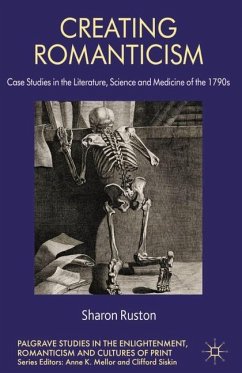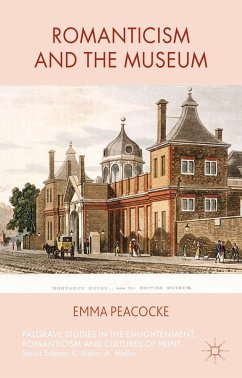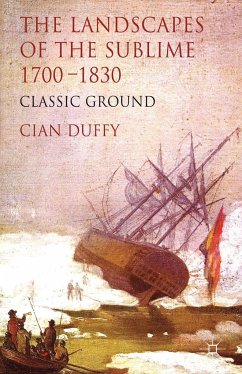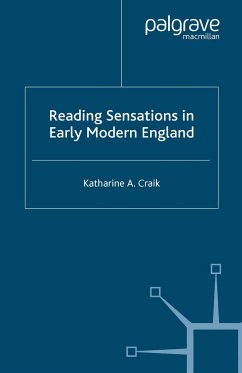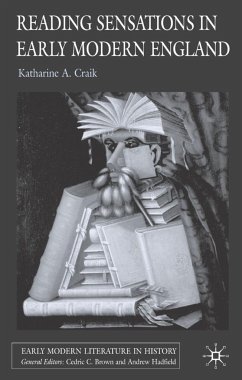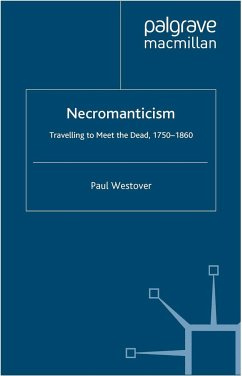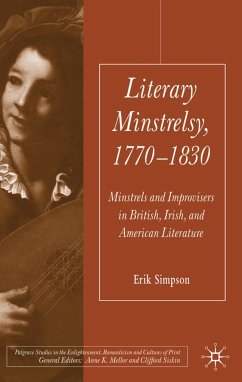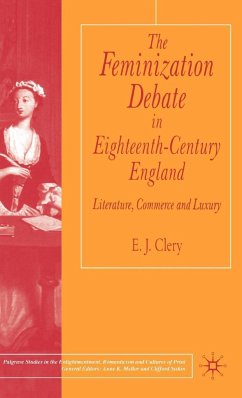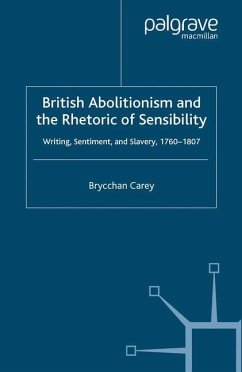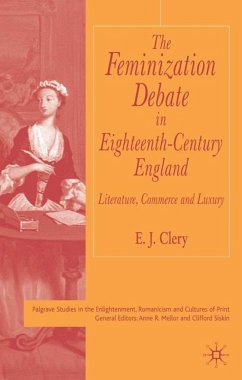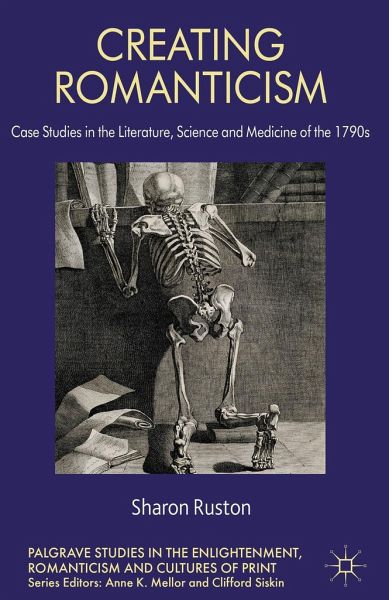
Creating Romanticism
Case Studies in the Literature, Science and Medicine of the 1790s

PAYBACK Punkte
19 °P sammeln!
This book argues that the term 'Romanticism' should be more culturally-inclusive, recognizing the importance of scientific and medical ideas that helped shape some of the key concepts of the period, such as natural rights, the creative imagination and the sublime. The book discusses a range of authors including Joanna Baillie, Edmund Burke, Erasmus Darwin, William Godwin, Joseph Priestly, Mary Shelley and Mary Wollstonecraft. Chapters look at these figures from a new perspective, using their journal articles, diaries, manuscript notebooks and poetry, as well as unpublished letters. Humphry Dav...
This book argues that the term 'Romanticism' should be more culturally-inclusive, recognizing the importance of scientific and medical ideas that helped shape some of the key concepts of the period, such as natural rights, the creative imagination and the sublime. The book discusses a range of authors including Joanna Baillie, Edmund Burke, Erasmus Darwin, William Godwin, Joseph Priestly, Mary Shelley and Mary Wollstonecraft. Chapters look at these figures from a new perspective, using their journal articles, diaries, manuscript notebooks and poetry, as well as unpublished letters. Humphry Davy is given particular attention and his poetry and chemistry are explored as central to Romantic efforts in both poetry and science.





